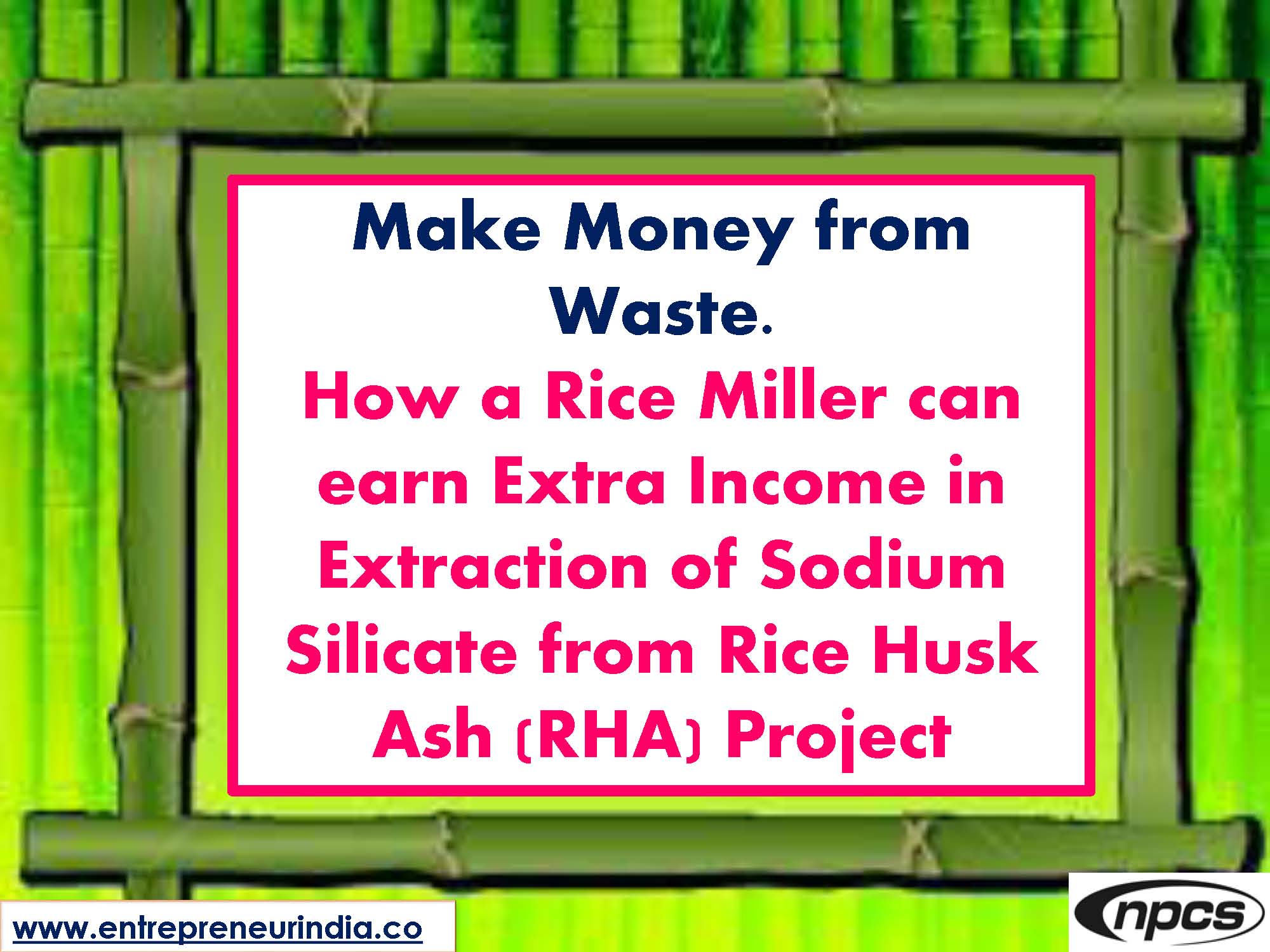
In today’s world, where sustainability is no longer a choice but a necessity, waste is increasingly being viewed not as a burden but as an opportunity. With innovation, awareness, and the right systems in place, it is entirely possible to make money from waste. Whether it’s household garbage, agricultural byproducts, or industrial scraps, many of these materials hold hidden value that can be unlocked through recycling, repurposing, or upcycling. Across the globe, entrepreneurs and communities are turning trash into cash — and building environmentally and financially sustainable businesses in the process.
Contents
- 1 Make Money from Waste
- 1.1 1. Recycling Household Waste
- 1.2 2. Composting Organic Waste
- 1.3 3. Start an E-Waste Collection and Recycling Business
- 1.4 4. Upcycle Waste Materials into Handicrafts
- 1.5 5. Create Biogas from Kitchen and Agricultural Waste
- 1.6 6. Paper Recycling and Stationery Production
- 1.7 7. Repurpose Plastic Waste into Construction Materials
- 1.8 8. Textile and Fabric Waste Recycling
- 1.9 9. Furniture Restoration from Discarded Items
- 1.10 10. Start a Waste Collection and Sorting Center
- 1.11 Bonus: Sell Waste to Energy Plants
- 1.12 Government Support and Startup Opportunities
- 1.13 Conclusion
Make Money from Waste
Making money from waste is not only environmentally responsible but also economically viable. This concept leverages the circular economy — a system that focuses on minimizing waste and maximizing resource efficiency. With rising demand for eco-friendly products, reduced waste disposal costs, and the potential for government support, businesses and individuals now have several avenues to make money from waste across various sectors.
Let’s explore some of the most practical and profitable ways to turn waste into wealth.
See Also :- Converting Waste Agricultural Biomass into a Resource
1. Recycling Household Waste
One of the simplest ways to make money from waste starts right at home. Items like newspapers, old clothes, glass bottles, plastic containers, and metal scraps can be segregated and sold to local scrap dealers or recycling plants. Moreover, with online platforms and collection centers now available, it’s easier than ever to:
-
Sell used cardboard, PET bottles, or aluminum cans
-
Donate or sell old electronics for e-waste processing
-
Exchange newspapers and books for cash or coupons
This model works well for both individuals and residential communities aiming to reduce waste while earning a small yet consistent income.
2. Composting Organic Waste
Food scraps, garden clippings, and other biodegradable materials can be converted into organic compost. Composting can be done in households, schools, restaurants, or even farms. The finished compost can then be:
-
Sold to local gardeners and plant nurseries
-
Packaged and sold under a brand as organic fertilizer
-
Used to reduce expenses on soil nutrients in home gardens
By composting kitchen and green waste, not only do you reduce landfill use, but you also create a valuable product that helps others grow healthier plants.
See Also :- Make Money From Rice Husk Ash
3. Start an E-Waste Collection and Recycling Business
Electronic waste is growing rapidly due to the fast pace of technological upgrades. Mobile phones, computers, printers, batteries, and other gadgets are often discarded improperly. However, these items contain valuable metals such as:
-
Gold, silver, and copper
-
Rare earth elements
-
Recyclable plastic and circuit boards
Starting an e-waste collection business allows you to make money from waste while contributing to safe disposal practices. You can partner with licensed recyclers or refurbish old devices for resale.
4. Upcycle Waste Materials into Handicrafts
Creative entrepreneurs can transform discarded materials into attractive and usable products. This process, known as upcycling, involves adding value to waste rather than breaking it down into raw components. Examples include:
-
Making handbags from old denim jeans
-
Crafting home décor from glass bottles or tin cans
-
Creating lamps, furniture, or toys from wooden scraps
Upcycled products are increasingly popular in eco-conscious markets and can be sold online, at craft fairs, or in boutique stores.
See Also :-Processing Business Ideas in Punjab
5. Create Biogas from Kitchen and Agricultural Waste
Organic waste, such as leftover food, cow dung, or crop residues, can be used to produce biogas through anaerobic digestion. Biogas is a clean, renewable energy source used for:
-
Cooking and heating
-
Electricity generation
-
Organic fertilizer byproducts (slurry)
Rural households and farms can install small-scale biogas units to save on LPG and electricity costs, and sell surplus power or fertilizer. Community-level biogas plants can also generate income and reduce local pollution.
6. Paper Recycling and Stationery Production
Waste paper from offices, schools, and homes can be collected and recycled into fresh paper or converted into eco-friendly stationery products such as:
-
Notebooks and envelopes
-
Greeting cards and paper bags
-
Seed paper for planting
Setting up a small recycling or craft paper unit involves modest investment and can be a good business for women-led self-help groups, NGOs, or eco-startups.
See Also :- Processing Business Ideas in Rajasthan
7. Repurpose Plastic Waste into Construction Materials
Plastic, which poses one of the biggest environmental threats, can be used to create construction materials like:
-
Interlocking tiles and pavement blocks
-
Plastic bricks for low-cost housing
-
Road surfacing using shredded plastic
These applications not only reduce plastic pollution but also result in durable and cost-effective building solutions. Municipalities and private builders are showing increasing interest in these innovations, opening new revenue channels.
8. Textile and Fabric Waste Recycling
The fashion industry generates tons of textile waste every year. This discarded fabric can be:
-
Recycled into cleaning rags and insulation
-
Reused in patchwork quilts and clothing lines
-
Sold as raw material to recycling plants
You can collect fabric waste from tailors, boutiques, or garment factories and supply it to recycling centers, or set up your own upcycled fashion brand.
9. Furniture Restoration from Discarded Items
Old or broken furniture that ends up in landfills can be refurbished, redesigned, and resold. This is an ideal venture for carpenters or DIY enthusiasts looking to make money from waste by:
-
Restoring old chairs, tables, or cabinets
-
Painting and polishing vintage pieces for a modern look
-
Selling items via social media, flea markets, or e-commerce platforms
With a growing preference for vintage and rustic furniture, this business has both creative and commercial potential.
10. Start a Waste Collection and Sorting Center
Entrepreneurs can establish a waste collection and material recovery facility (MRF) that serves homes, businesses, and institutions. The process includes:
-
Collecting mixed waste
-
Sorting it into recyclables, compostables, and reject waste
-
Selling the sorted items to appropriate buyers or processors
This scalable model works well with tie-ups from municipal bodies or housing societies. With digitization and data tracking, you can also generate CSR partnerships or carbon credits.
See Also :- Processing Business Ideas in Telangana
Bonus: Sell Waste to Energy Plants
Waste-to-energy (WTE) technology is gaining momentum in urban areas. If you’re able to collect large volumes of biomass, plastic, or rubber waste, you can sell it to WTE plants that produce:
-
Electricity
-
Synthetic fuel
-
Steam for industrial processes
Some facilities even pay per ton for high-calorific-value waste, helping you earn while also reducing environmental burdens.
Government Support and Startup Opportunities
To encourage sustainable business models, the Indian government and many international agencies are supporting waste-to-wealth initiatives through:
-
Swachh Bharat Mission – For urban waste management
-
Startup India Program – Special grants for eco-enterprises
-
NABARD and MSME Loans – For composting and recycling units
-
United Nations SDG Grants – For climate and waste solutions
Startups, NGOs, and community entrepreneurs can all leverage these schemes to scale their waste-based enterprises profitably.
Conclusion
To sum up, there has never been a better time to make money from waste. With increasing environmental consciousness, growing demand for sustainable alternatives, and technological advancements, waste is no longer useless. From composting and recycling to upcycling and biogas, multiple opportunities exist for both individuals and enterprises to generate income while solving real environmental problems. The key is to start small, innovate continuously, and focus on efficiency and impact. When waste is viewed as a resource, it transforms not just economies but also the future of the planet.




